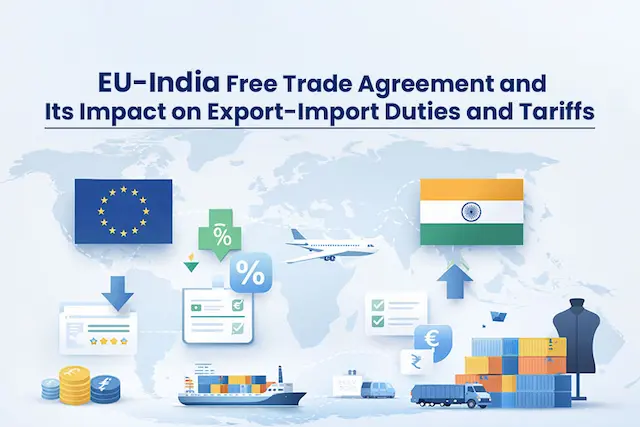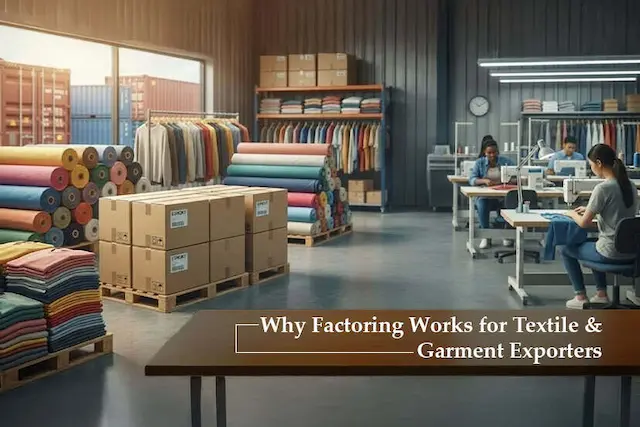A Certificate of Origin (COO) is a crucial document in international trade. It serves as proof that the goods being exported were produced, manufactured, or processed in a specific country. This document plays an essential role in global trade, especially when an exporter wants to claim benefits like reduced import duties under trade agreements. The COO is often attached to the commercial invoice or submitted as a separate document and is required by customs authorities to determine if the products qualify for import and if any duties apply.
Let’s dive deeper into what a Certificate of Origin is, its types, how it’s issued, and why it’s so important for exporters.
What is a Certificate of Origin?
A Certificate of Origin (COO) is an important document used in international trade to verify the country where a product was manufactured. It provides essential details about the product, such as what it is, its destination, and the countries it will be exported to.
This certificate plays a crucial role in export and cross-border trade because many countries have agreements or treaties that require such documentation to ensure smooth and legal transactions. It helps customs authorities understand where the goods are coming from, which can impact things like tariffs, taxes, and trade regulations.
In simple terms, a Certificate of Origin proves where a product was made and is necessary for the legal export of goods from one country to another. Without it, businesses may face delays, extra costs, or even refusal of entry for their goods into another country.
Importance of a Certificate of Origin
The COO plays an essential role in international trade by providing detailed information about the product’s origin and its destination. Customs authorities in the importing country rely on the COO to determine if the product is eligible for import, and if any duties need to be applied. It ensures compliance with trade regulations, avoids delays at customs, and helps exporters qualify for duty exemptions.
For example, if you’re exporting goods to a country with which your home country has a free trade agreement, the preferential COO allows you to claim reduced import tariffs. Without this document, the importer may have to pay higher tariffs, which can make your product less competitive in the market.
A COO typically includes:
– Description of the product
– Origin of the product
– Exporter’s details
– Destination country
– Notarized signature of the exporter
– Certification from the authorized agency in the exporting country
In some cases, customs authorities may also require an electronically signed COO, known as an e-COO, which is digitally verified by the authorized agency or chamber of commerce.
Who issues a Certificate of Origin?
A Certificate of Origin (COO) is a crucial document that proves the origin of goods being exported from a country. In India, this certificate is typically issued by the Indian Chamber of Commerce or the Trade Promotion Council of India. It certifies that the products being exported are either entirely produced or manufactured in India, which is essential for both the exporter and the importing country.
This document helps ensure smooth trade by verifying the origin of goods, which may affect customs duties, tariffs, or even trade agreements between countries. Millions of COOs are issued globally to facilitate international trade.
For Indian exporters, the Certificate of Origin must be signed by the exporter on a non-judicial stamp paper worth Rs 10, with an indemnity bond in place. This bond must be duly notarized, and the COO must be stamped by the Chamber of Commerce or an authorized body.
The Certificate of Origin serves as one of the most commonly used documents in international trade to confirm where goods are produced. It plays a vital role in proving the authenticity and origin of the goods, helping exporters comply with legal and trade regulations worldwide.
Types of Certificates of Origin
There are two main categories of Certificates of Origin: preferential and non-preferential.
1. Preferential Certificate of Origin
This type of COO is used when an exporter wants to take advantage of reduced tariffs or other trade benefits under specific trade agreements. These agreements allow certain products to be imported with lower or zero tariffs, but only if the products originate from a country that has a trade agreement with the importing country.
Some of the key trade agreements under which preferential COOs are required include:
– Generalized System of Preferences (GSP): This program offers unilateral tariff reductions to developing countries from selected developed nations.
– Global System of Trade Preferences (GSTP): This agreement involves tariff reductions exchanged between developing countries, including India and 12 other countries.
– SAARC Preferential Trading Agreement (SAPTA): This allows tariff reductions between South Asian Association for Regional Cooperation (SAARC) member countries, including India, Pakistan, Sri Lanka, Bangladesh, Bhutan, Nepal, and the Maldives.
– Asia-Pacific Trade Agreement (APTA): An agreement aimed at reducing tariffs and non-tariff barriers among Asia-Pacific countries.
– India-Sri Lanka Free Trade Agreement (ISFTA): An agreement that allows for reduced tariffs on goods traded between India and Sri Lanka.
– India-ASEAN Free Trade Agreement (AIFTA): A comprehensive trade agreement between India and the 10 ASEAN nations.
Under these agreements, the exporter must provide a COO to prove that the products meet the rules of origin criteria set out in the trade agreements. The Directorate-General of Foreign Trade (DGFT) has authorized certain agencies to issue preferential COOs for exporters in India.
2. Non-Preferential Certificate of Origin
Unlike the preferential COO, a non-preferential COO does not offer any tariff benefits. It simply certifies the origin of the goods. However, this certification may still be required by customs in the importing country to ensure the goods meet local regulations or trade restrictions.
The Indian government has authorized several agencies to issue non-preferential COOs, such as:
– Directorate-General of Foreign Trade (DGFT) and its regional offices
– Textile Committee and its regional offices
– Federation of Indian Export Organisations (FIEO) and its branches
– Confederation of Indian Industry (CII) and its branches
– PHD Chamber of Commerce and Industry
These agencies play a vital role in ensuring that the COO meets international standards, allowing smooth trade across borders.
Self-Certification of Origin
The self-certification system offers an alternative to obtaining a COO through a third-party agency. Under this system, exporters can issue their own COOs if they are recognized by the DGFT as an “Approved Exporter.”
To be eligible for self-certification, exporters must be classified as status holders, meaning they fall into one of the following categories:
– One Star Export House
– Two Star Export House
– Three Star Export House
– Four Star Export House
– Five Star Export House
These exporters can self-certify the COO for goods that are manufactured by them and listed in their registration certificates. This system streamlines the export process, allowing recognized exporters to quickly certify their products without waiting for third-party approval.
How to Obtain a Certificate of Origin?
A COO can be obtained either on a regular basis or for individual shipments. Here’s how the process typically works:
1. Regular Basis COO
For exporters who regularly ship goods, they may apply for a COO on a long-term basis. When applying for a regular COO, the exporter is required to submit an **indemnity bond** on stamp paper (usually Rs. 50) along with other necessary documentation.
2. Individual Shipments COO
For one-time or occasional shipments, exporters can apply for a COO on a shipment-by-shipment basis. In this case, the indemnity bond is typically submitted on Rs. 10 stamp paper.
In either case, exporters need to include several copies of the completed COO application, the invoice for the shipment, and a cover letter to the authorized agency. A fee is also charged for issuing the COO, which usually covers multiple copies of the document. For example, eight copies of a COO typically cost Rs. 100, while certifying eight copies of an invoice costs around Rs. 50.
Conclusion
The Certificate of Origin (COO) is an indispensable document in global trade. It serves to establish the country of origin of goods, helping exporters access preferential tariffs under various trade agreements. The COO can be issued in two types—preferential and non-preferential—depending on whether the product qualifies for reduced duties. With the option of self-certification for recognized exporters, the process of obtaining a COO has become more efficient.
Exporters must be aware of the necessary steps to obtain a COO and ensure that they comply with the regulations of the importing country. The COO not only facilitates smoother customs clearance but also makes exported goods more attractive in competitive markets due to potential tariff reductions. By understanding and properly using the COO, exporters can significantly enhance their global trade efforts.




